Full Tilt Poker Scandal Howard
In recent years, Howard Lederer has become synonymous with the Full Tilt Poker scandal and subsequent Black Friday closedown of 2011. With the weight of responsibility hanging loosely around his neck (along with Ray Bitar and Chris Ferguson), Lederer has hardly been seen since the events of eight years ago. A RECENT HISTORY OF NITROLLS. One apology and the surprise appearance of Chris ‘Jesus’ Ferguson later, and it was the turn of Howard ‘The Professor’ Lederer to step into the Rio in Las Vegas, yesterday, for the World Series of Poker. The former Full Tilt poker founder and director took his seat in the $10,000 NL 2-7 single draw championship event – his first WSOP appearance since 2010 – and refused to answer questions about his involvement in the 2011 Full Tilt scandal which saw some $400million of player.
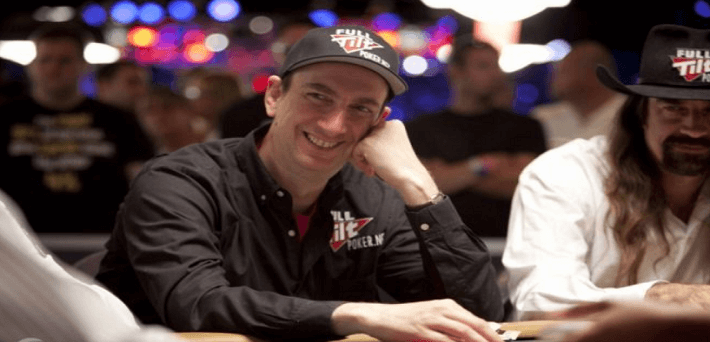
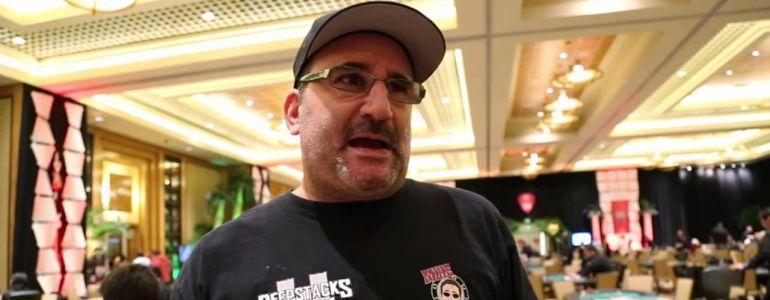
How I Got Started in the Online Poker World
Although never a serious (or maybe good) online poker player, I first got involved in the world of online poker back in 2001. At the time it was just the infancy of the “poker boom” that later came in 2003 after Chris Moneymaker won the WSOP and remember tuning in nightly to watch my favorite poker players play for millions of dollars on shows like the World Series of Poker and The World Poker Tour. Some of my favorite players were Phil Ivey, Daniel Negreanu, Howard Lederer, Chris “Jesus” Ferguson and many others.
At the time there were only a handful of well known poker sites one which was Party Poker. I remember seeing a link at the bottom of their site that asked players if they wanted to earn money by referring friends and others to play on the site and in return they would generously pay you a fee or commission percentage. This was called affiliate marketing and in reality was also the boom for that industry. Over the next two or three years I developed quite a few sites that talked about poker news, bio’s of top players and the best signup bonuses at various online card rooms.
Then in 2004 a group of some of the top poker players in the world announced a new site called Full Tilt Poker. I remember getting the email that they had launched and immediately signed up as an affiliate. I believe I was the 37th or 38th affiliate ever at the site and over the next few years promoted Full Tilt on various sites I ran.
At the time I loved poker and actually still do in some ways. I loved writing about the latest poker news and telling others about recent tournaments and writing about the pros I loved to watch on TV.
Signs of Trouble
Somewhere around 2005/2006 I started getting worried about the industry. Fellow affiliates started talking about affiliate checks bouncing and trouble withdrawing funds from certain sites, but I always dealt with the big sites so never really had that problem up until the Neteller fiasco. With the passing of the 2006 UIGEA I decided the industry was too volatile and that it would be in my best interest to take what I’ve learned about web design, SEO and affiliate marketing and move into a more accepted and mainstream industry. From that point on I pretty much quit the industry and in the years since have seen many friends lose tons of money to sites that went bankrupt, moved out of the US entirely or simply couldn’t easily transfer funds back and forth from the US.
While I still love playing the game occasionally with friends or on trips back to Vegas, I always wondered how safe was our money online? How legal was it really? Although players and affiliates seem to fall within a gray area and weren’t being sought for prosecution.. I still never felt there was any way we could be sure players/affiliates money was safe, that the games were fair and legit (Absolute Poker cheating scandal) or that the government wouldn’t one day decide to take action. For me it was an extremely smart decision and allowed me to use my skills on more mainstream projects. In light of the action the US Dept of Justice has taken over the last 6 months, I’d say I made the right call and got up from a game that might have never been fair or legal for that matter.
CNBC Breaking News of Full Tilt Poker Alleged Ponzi Scheme
Was Full Tilt Poker a Global Ponzi Scheme?
Earlier today U.S. Attorney Preet Bharara in the Southern District of New York filed a motion Tuesday to amend an earlier civil complaint to allege that Mr. Ferguson, Mr. Lederer and two other directors for the website FullTiltPoker.com operated what the Justice Department says was a massive Ponzi scheme that allowed the company to pay out $444 million to themselves and other owners, which so far have included famous poker players Chris “Jesus” Ferguson, Howard “Poker Professor” Lederer and Rafael Furst. No other players have so far been named, but the government said that, in total, the 23 owners of the site had taken out hundreds of millions of dollars in distributions over the years.
According to the complaint the government alleges Full Tilt executives misrepresented to the website’s players that the money the company was supposed to be holding in player accounts was safely held when it was actually being used for other purposes, including payments to owners.
“In reality, Full Tilt Poker did not maintain funds sufficient to repay all players, and in addition, the company used player funds to pay board members and other owners more than $440 million since April 2007,” the complaint read.
The prosecutor said that, as of March 31, Full Tilt Poker owed about $390 million to players around the world, including $150 million to U.S. players. But the company only had $60 million in bank accounts to pay them back.
Full Tilt paid more than $443 million in player funds to the board of directors and other owners, with $41 million going to Bitar, $42 million going to Lederer, and nearly $12 million going to another board member, Rafael Furst.
The company paid $25 million to Ferguson, and said that it owed him another $62 million, according to the prosecutor’s office, noting that much of the money was transferred to Swiss and overseas accounts.
“In order to maintain its false image of financial security, Full Tilt continued to credit player accounts without disclosing its inability to fund those credits,” the prosecutor said.”When players gambled with these phantom funds and lost to other players, a massive shortfall developed.”
The prosecutor said “this scheme continued even after the original complaint was filed and the criminal indictment unsealed in April.”
As time went on, the poker site had even less money to pay its customers. By June, Full Tilt owed $300 million to players around the world but only had $6 million to pay them, according to the prosecutor’s office.
“Full Tilt was not a legitimate poker company, but a global Ponzi scheme,” said Bharara, in a press release. “Full Tilt insiders lined their own pockets with funds picked from the pockets of their most loyal customers while blithely lying to both players and the public alike about the safety and security of the money deposited with the company.”
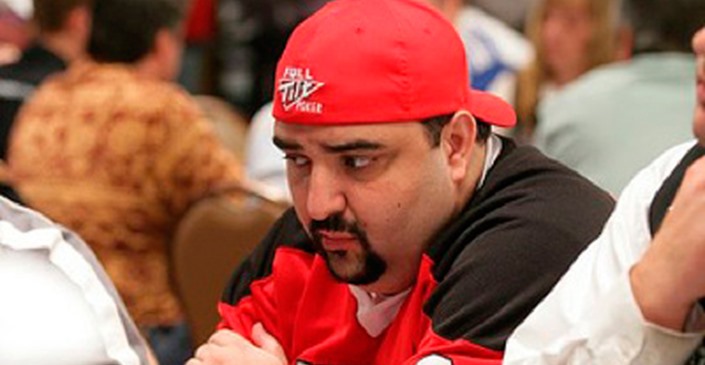
Neither Lederer, Feguson or their attorneys have yet to make a public comment. Howard Lederer’s Twitter page also hasn’t been updated since April 12th, 2011 which was just 3 days before the original complaint was filed against Full Tilt and two other online poker rooms which now in the poker industry is known as Black Friday.
What About Phil Ivey?
Although the complaint states 23 members of the site that illegally received hundreds of millions in funds there’s no word of arguably poker’s greatest player, Phil Ivey.
Free Tilt Poker
In June, Phil Ivey who was Full Tilt’s most recognized star and 8 time WSOP Champ announced he would not be playing in the 2011 WSOP in response to players still being owed millions of dollars by Full Tilt and would also be filing a lawsuit for $150 Million on their behalf against Tiltware. The lawsuit was filed a few days after his announcement in Nevada.
“I am deeply disappointed and embarrassed that Full Tilt players have not been paid money they are owed. I am equally embarrassed that as a result many players cannot compete in tournaments and have suffered economic harm,” Ivey, who has played online on Full Tilt and appeared in the company’s TV commercials, said in a statement posted on his website which was completely revamped a few months ago and has no affiliation or marketing for Full Tilt Poker.
“I am not playing in the World Series of Poker as I do not believe it is fair that I compete when others cannot. I am doing everything I can to seek a solution to the problem as quickly as possible,” he said.
Nobody knows for sure who was involved from the top down and who simply thought they were being handsomely paid by one of the largest online poker sites in the world to help promote the site, but over time we will find out. As more information is released we’ll be better able to tell if Ivey was also in on this and simply protecting himself by filing the suit and distancing himself from the site or legitimately was upset and embarrassed to be part of something which could lead to criminal prosecution and potentially decades in prison.
Update: Here’s an interview from today that PokerNews.com did with Tom “Durrrr” Dwan about what he knows in relation to the charges.
Closing Thoughts
To me the most troubling part was that Full Tilt was crediting US players with false money into their accounts and still allowing them to play full well knowing that they had been having problems with US player transactions for quite some time. How they thought this was a sound business decision is beyond me. Anyone with half a brain could have seen that would never work.
In the end if the allegations are true this has to be the perfect story for CNBC’s American Greed show. It still shocks me when I see stories like this. Why millionaire’s decide they’ll do anything to have more even if it’s at the expense of other people’s livelihoods and their image along with the fact they could spend the rest of their lives in prison is beyond my comprehension. Although Wall Street star Gordon Gecko one said that “Greed is good”… it’s not worth it when it destroys your values and other people’s lives.
Although I do think online poker should be legal in the US for adults, I also think it needs to be regulated by the government, taxed and made as safe as possible for players and affiliates alike. Hopefully the recent actions by the US Government don’t hinder that and instead put it on a fast track to safe online gambling.
What are your thoughts on todays complaint? Is the US doing the right thing? Are these players responsible for a $400 Million Ponzi scheme? How will it affect the poker industry? Let me know in the comments below.
Some of the quotes above were taken in part from CNNMoney’s report.
How I Got Started in the Online Poker World
Although never a serious (or maybe good) online poker player, I first got involved in the world of online poker back in 2001. At the time it was just the infancy of the “poker boom” that later came in 2003 after Chris Moneymaker won the WSOP and remember tuning in nightly to watch my favorite poker players play for millions of dollars on shows like the World Series of Poker and The World Poker Tour. Some of my favorite players were Phil Ivey, Daniel Negreanu, Howard Lederer, Chris “Jesus” Ferguson and many others.
At the time there were only a handful of well known poker sites one which was Party Poker. I remember seeing a link at the bottom of their site that asked players if they wanted to earn money by referring friends and others to play on the site and in return they would generously pay you a fee or commission percentage. This was called affiliate marketing and in reality was also the boom for that industry. Over the next two or three years I developed quite a few sites that talked about poker news, bio’s of top players and the best signup bonuses at various online card rooms.
Then in 2004 a group of some of the top poker players in the world announced a new site called Full Tilt Poker. I remember getting the email that they had launched and immediately signed up as an affiliate. I believe I was the 37th or 38th affiliate ever at the site and over the next few years promoted Full Tilt on various sites I ran.
At the time I loved poker and actually still do in some ways. I loved writing about the latest poker news and telling others about recent tournaments and writing about the pros I loved to watch on TV.
Signs of Trouble
Somewhere around 2005/2006 I started getting worried about the industry. Fellow affiliates started talking about affiliate checks bouncing and trouble withdrawing funds from certain sites, but I always dealt with the big sites so never really had that problem up until the Neteller fiasco. With the passing of the 2006 UIGEA I decided the industry was too volatile and that it would be in my best interest to take what I’ve learned about web design, SEO and affiliate marketing and move into a more accepted and mainstream industry. From that point on I pretty much quit the industry and in the years since have seen many friends lose tons of money to sites that went bankrupt, moved out of the US entirely or simply couldn’t easily transfer funds back and forth from the US.
While I still love playing the game occasionally with friends or on trips back to Vegas, I always wondered how safe was our money online? How legal was it really? Although players and affiliates seem to fall within a gray area and weren’t being sought for prosecution.. I still never felt there was any way we could be sure players/affiliates money was safe, that the games were fair and legit (Absolute Poker cheating scandal) or that the government wouldn’t one day decide to take action. For me it was an extremely smart decision and allowed me to use my skills on more mainstream projects. In light of the action the US Dept of Justice has taken over the last 6 months, I’d say I made the right call and got up from a game that might have never been fair or legal for that matter.
CNBC Breaking News of Full Tilt Poker Alleged Ponzi Scheme
Was Full Tilt Poker a Global Ponzi Scheme?
Earlier today U.S. Attorney Preet Bharara in the Southern District of New York filed a motion Tuesday to amend an earlier civil complaint to allege that Mr. Ferguson, Mr. Lederer and two other directors for the website FullTiltPoker.com operated what the Justice Department says was a massive Ponzi scheme that allowed the company to pay out $444 million to themselves and other owners, which so far have included famous poker players Chris “Jesus” Ferguson, Howard “Poker Professor” Lederer and Rafael Furst. No other players have so far been named, but the government said that, in total, the 23 owners of the site had taken out hundreds of millions of dollars in distributions over the years.
According to the complaint the government alleges Full Tilt executives misrepresented to the website’s players that the money the company was supposed to be holding in player accounts was safely held when it was actually being used for other purposes, including payments to owners.
“In reality, Full Tilt Poker did not maintain funds sufficient to repay all players, and in addition, the company used player funds to pay board members and other owners more than $440 million since April 2007,” the complaint read.
The prosecutor said that, as of March 31, Full Tilt Poker owed about $390 million to players around the world, including $150 million to U.S. players. But the company only had $60 million in bank accounts to pay them back.
Full Tilt paid more than $443 million in player funds to the board of directors and other owners, with $41 million going to Bitar, $42 million going to Lederer, and nearly $12 million going to another board member, Rafael Furst.
The company paid $25 million to Ferguson, and said that it owed him another $62 million, according to the prosecutor’s office, noting that much of the money was transferred to Swiss and overseas accounts.
“In order to maintain its false image of financial security, Full Tilt continued to credit player accounts without disclosing its inability to fund those credits,” the prosecutor said.”When players gambled with these phantom funds and lost to other players, a massive shortfall developed.”
The prosecutor said “this scheme continued even after the original complaint was filed and the criminal indictment unsealed in April.”
As time went on, the poker site had even less money to pay its customers. By June, Full Tilt owed $300 million to players around the world but only had $6 million to pay them, according to the prosecutor’s office.
“Full Tilt was not a legitimate poker company, but a global Ponzi scheme,” said Bharara, in a press release. “Full Tilt insiders lined their own pockets with funds picked from the pockets of their most loyal customers while blithely lying to both players and the public alike about the safety and security of the money deposited with the company.”
Neither Lederer, Feguson or their attorneys have yet to make a public comment. Howard Lederer’s Twitter page also hasn’t been updated since April 12th, 2011 which was just 3 days before the original complaint was filed against Full Tilt and two other online poker rooms which now in the poker industry is known as Black Friday.
What About Phil Ivey?
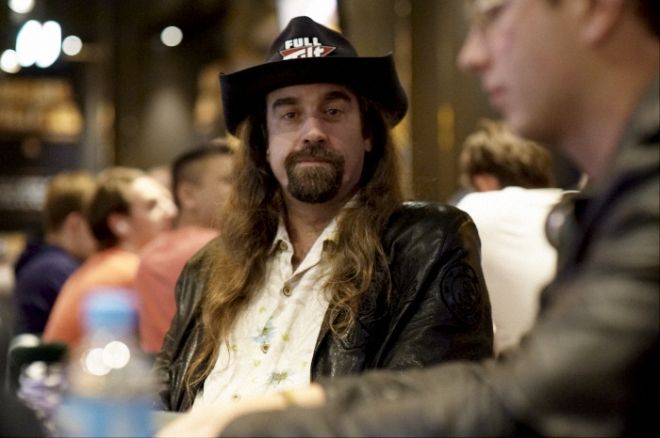
Although the complaint states 23 members of the site that illegally received hundreds of millions in funds there’s no word of arguably poker’s greatest player, Phil Ivey.
In June, Phil Ivey who was Full Tilt’s most recognized star and 8 time WSOP Champ announced he would not be playing in the 2011 WSOP in response to players still being owed millions of dollars by Full Tilt and would also be filing a lawsuit for $150 Million on their behalf against Tiltware. The lawsuit was filed a few days after his announcement in Nevada.
“I am deeply disappointed and embarrassed that Full Tilt players have not been paid money they are owed. I am equally embarrassed that as a result many players cannot compete in tournaments and have suffered economic harm,” Ivey, who has played online on Full Tilt and appeared in the company’s TV commercials, said in a statement posted on his website which was completely revamped a few months ago and has no affiliation or marketing for Full Tilt Poker.
Full Tilt Poker Scandal Howard Stern
“I am not playing in the World Series of Poker as I do not believe it is fair that I compete when others cannot. I am doing everything I can to seek a solution to the problem as quickly as possible,” he said.
Nobody knows for sure who was involved from the top down and who simply thought they were being handsomely paid by one of the largest online poker sites in the world to help promote the site, but over time we will find out. As more information is released we’ll be better able to tell if Ivey was also in on this and simply protecting himself by filing the suit and distancing himself from the site or legitimately was upset and embarrassed to be part of something which could lead to criminal prosecution and potentially decades in prison.
Update: Here’s an interview from today that PokerNews.com did with Tom “Durrrr” Dwan about what he knows in relation to the charges.
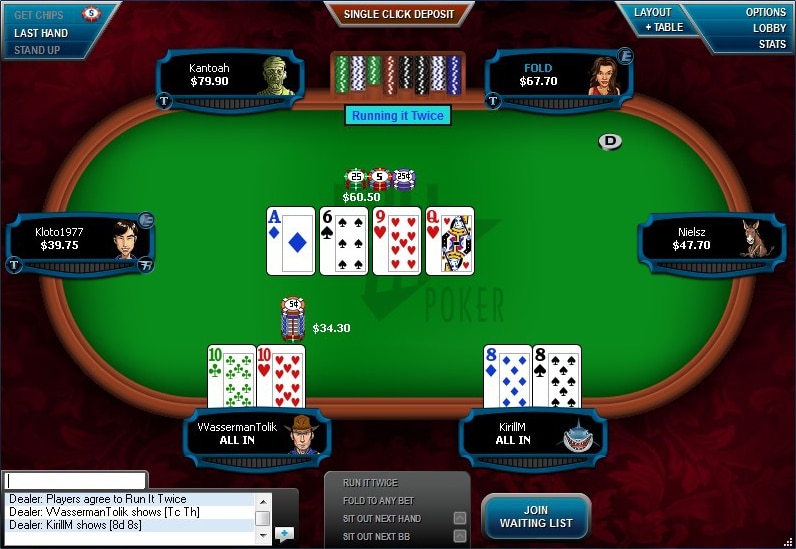
Closing Thoughts
To me the most troubling part was that Full Tilt was crediting US players with false money into their accounts and still allowing them to play full well knowing that they had been having problems with US player transactions for quite some time. How they thought this was a sound business decision is beyond me. Anyone with half a brain could have seen that would never work.
In the end if the allegations are true this has to be the perfect story for CNBC’s American Greed show. It still shocks me when I see stories like this. Why millionaire’s decide they’ll do anything to have more even if it’s at the expense of other people’s livelihoods and their image along with the fact they could spend the rest of their lives in prison is beyond my comprehension. Although Wall Street star Gordon Gecko one said that “Greed is good”… it’s not worth it when it destroys your values and other people’s lives.
Although I do think online poker should be legal in the US for adults, I also think it needs to be regulated by the government, taxed and made as safe as possible for players and affiliates alike. Hopefully the recent actions by the US Government don’t hinder that and instead put it on a fast track to safe online gambling.
What are your thoughts on todays complaint? Is the US doing the right thing? Are these players responsible for a $400 Million Ponzi scheme? How will it affect the poker industry? Let me know in the comments below.
Some of the quotes above were taken in part from CNNMoney’s report.